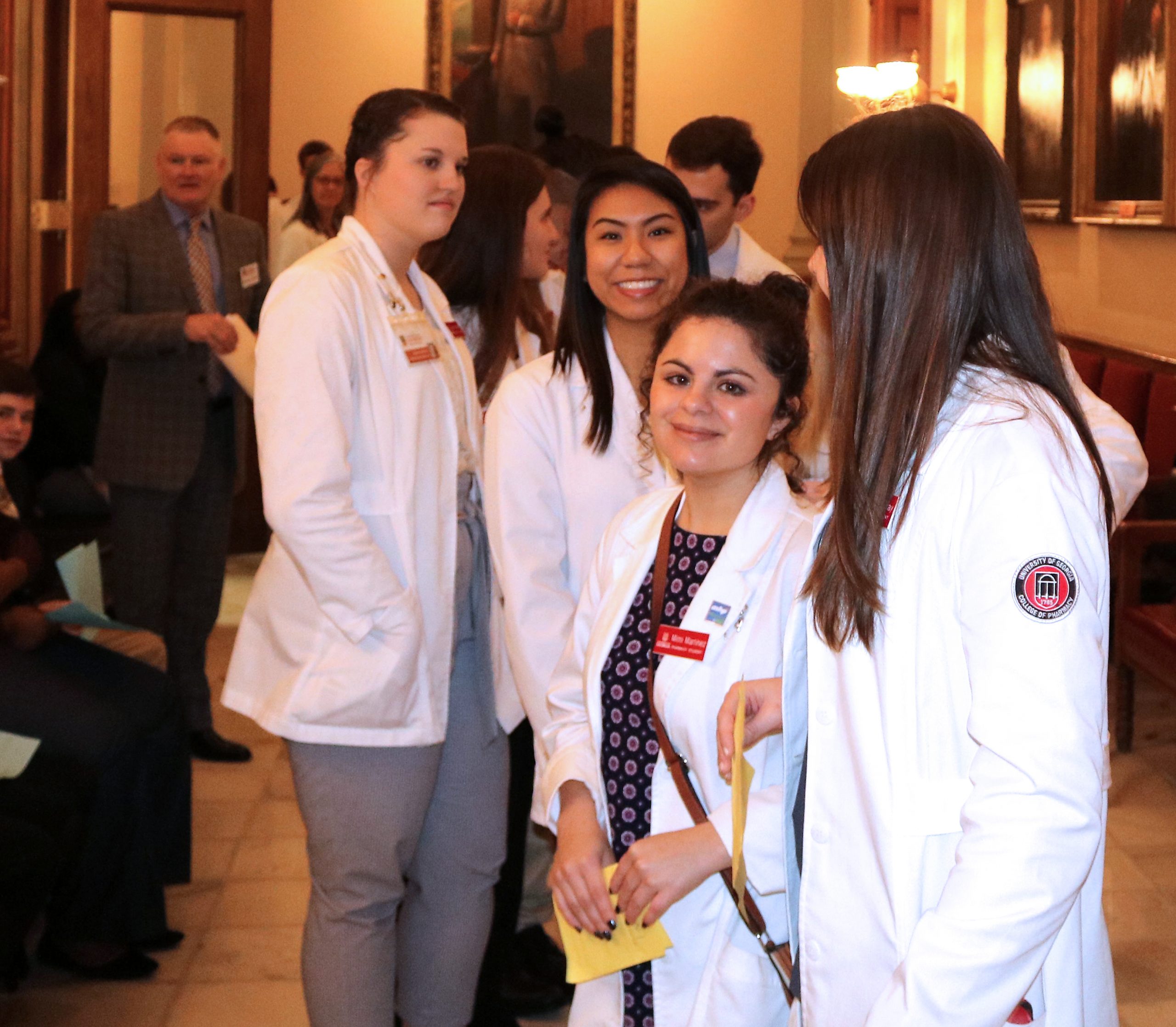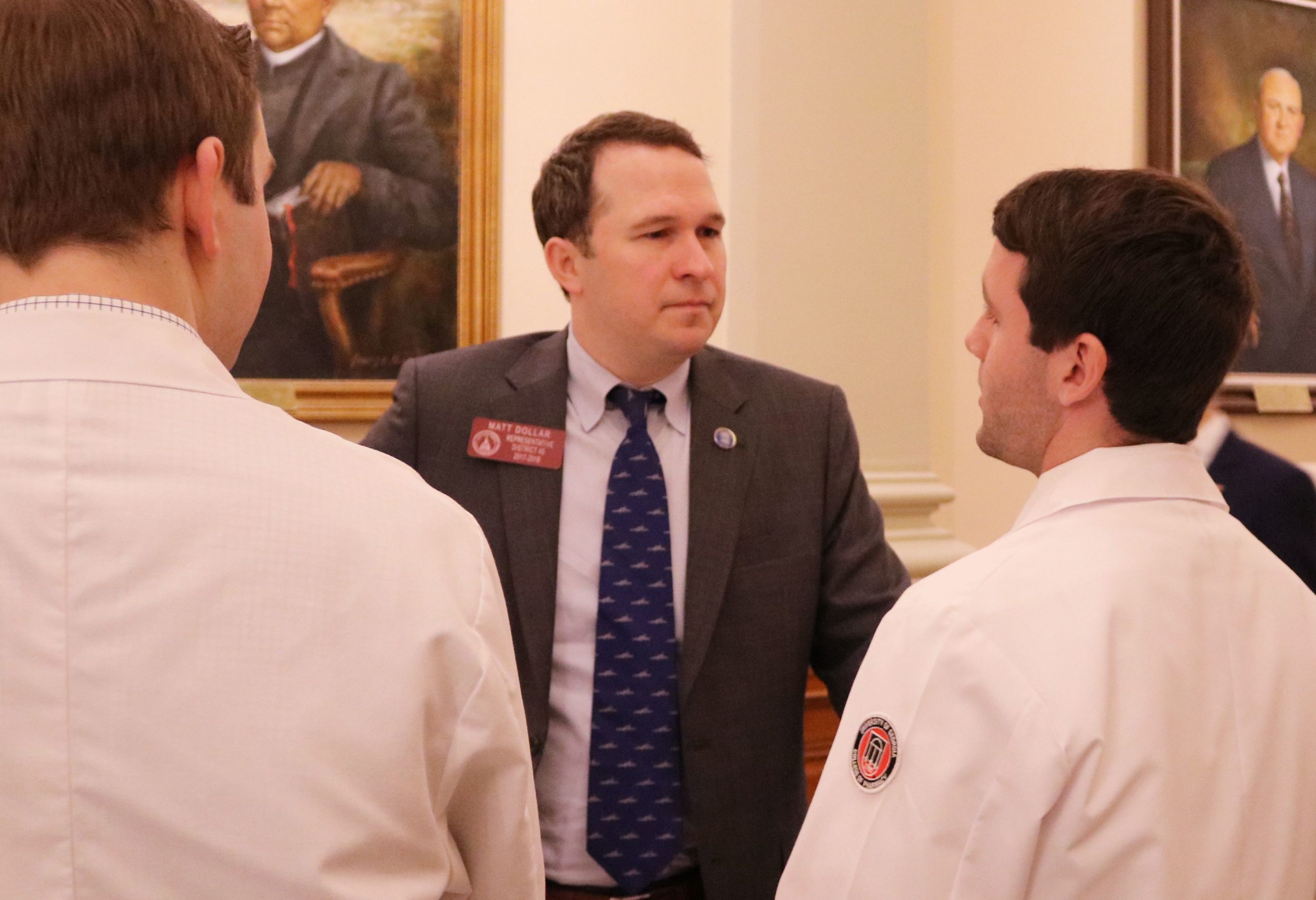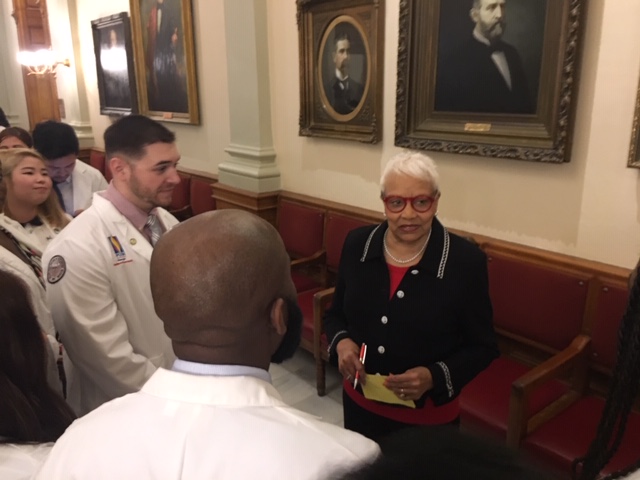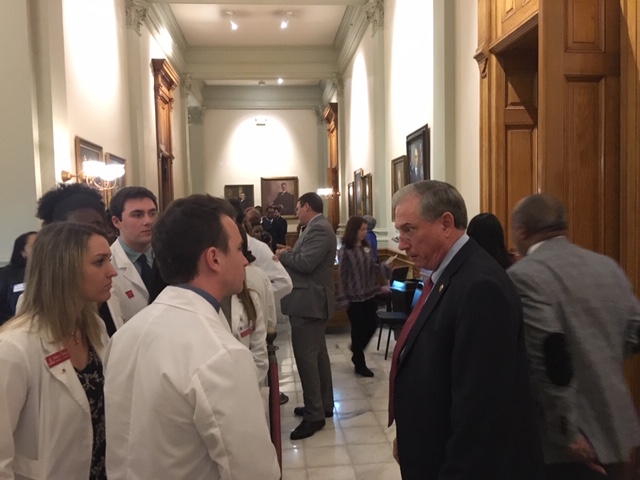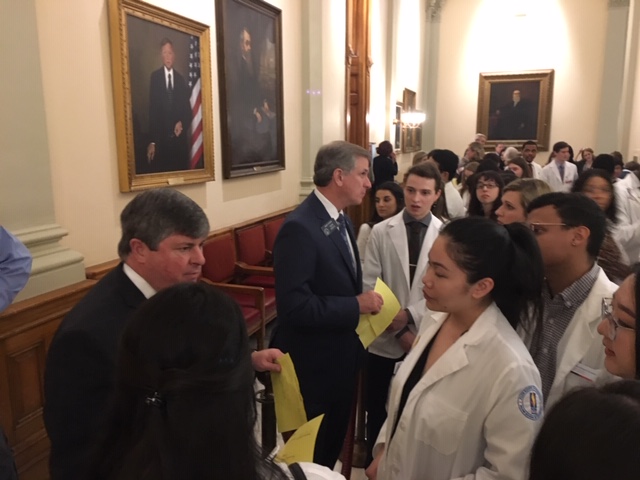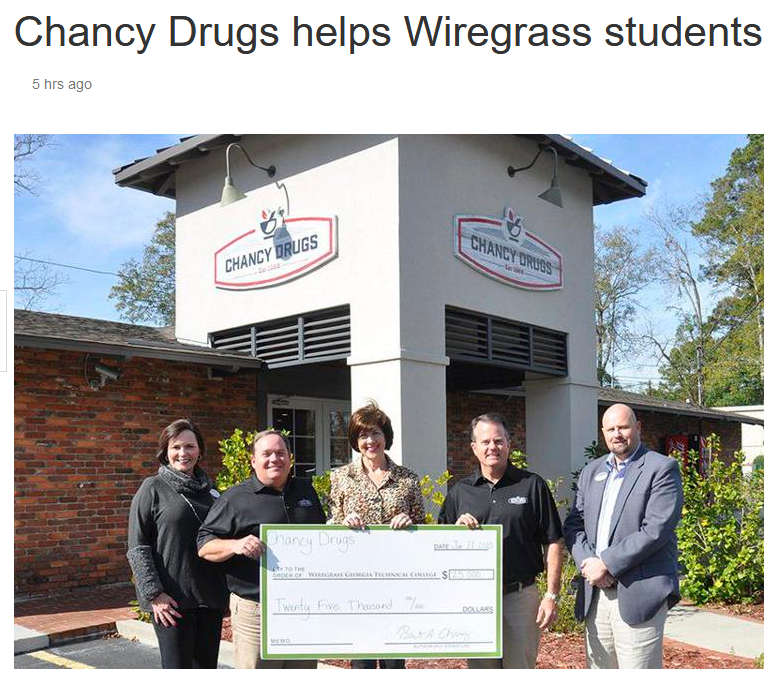Possible coronavirus treatment, wake up gently, fake pharmacist caught, and more
05 Feb 2020
Posted by Andrew Kantor
UGA and PCOM at the Gold Dome
Check out these pics of student pharmacists from UGA and PCOM on their lobbying visit to the state capitol.
More than 250 students from the two schools got a behind-the-scenes look from GPhA’s advocacy team before setting out to meet with legislators about the critical bills coming up in this year’s session.
Mercer and South University students: Your Day at the Dome is coming up on February 27. Sign up today at GPhA.org/dayatthedome!
Ragnarök* Watch: “Light at the End of the Tunnel” edition
Physicians in Thailand say a combination of antiviral drugs — lopinavir, ritonavir, and oseltamivir — has successfully treated the Wuhan coronavirus.
“This is not the cure, but the patient’s condition has vastly improved. From testing positive for 10 days under our care, after applying this combination of medicine the test result became negative within 48 hours.”
* I thought I’d switch it up a little this week.
Speaking of light: Interesting Alzheimer’s finding
It’s been known for a few years that lights flickering at 40Hz seem to help mice with Alzheimer’s. Now Georgia Tech and Emory researchers are a bit closer to knowing why.
Apparently, that frequency causes the release of the certain cytokine proteins, which then trigger the brain’s microglia immune cells. The microglia are what can purge the amyloid beta plaques that cause Alzheimer’s.
So now they have the pieces: Light at 40Hz, cytokine, microglia. What’s next is to figure out how and why it all works the way it does.
Shout-out to the Chancy team!
Bert and Hugh Chancy, owners of Chancy Drugs in Hahira, were recognized in the Valdosta Daily Times for their $25,000 donation to the Wiregrass Georgia Technical College’s pharmacy technology programs. Way to go!
Preparing to take the Georgia Pharmacists Practical Exam?
The Georgia Pharmacy Association is offering its one-day Practical Skills Refresher Course this Saturday, February 29 in Atlanta. It’s a four-hour class that brings you up to speed on the terminology, measurements, and procedures you’ll use on the Georgia Pharmacist Practical Exam.
NEW for 2020: Hands-on lab review. Get lab time with an instructor to watch you and provide feedback in a simulated testing environment. (Additional fee, and includes lunch.)
Deets
The course is from 9:00 a.m. to 1:00 p.m. on the campus of Mercer University. (No, you don’t have to be a Mercer student to go.) The optional lab portion is from 2:00 to 4:00 p.m. and includes lunch.
Current GPhA members pay just $159. If you want to add the hands-on lab and lunch, that’s an additional $89.
Go to GPhA.org/practicalskills to sign up.
Reminder: The Pharmacist Practical Examination itself is on Thursday, March 5, also on the Mercer campus. Click here for info from the Board of Pharmacy.
Wake to the sound of music
If you want to avoid being groggy in the morning, set your alarm to something melodic (e.g., Brahms) rather than something “non-melodic” (e.g., Norwegian death metal). At least according to researchers at Australia’s RMIT University.
“You would assume that a startling ‘beep beep beep’ alarm would improve alertness, but our data revealed that melodic alarms may be the key element. This was unexpected.”
Swiss, clocks, and diabetes
A screwed-up biological clock — sorry, “circadian rhythm” — can be a step on the road to diabetes. (The pancreas gets annoyed when its clock is disrupted, apparently, and doesn’t want to secrete insulin and glucagon.) So why not reset that clock?
You might think that involves getting patients to sleep more regularly, or put them in rooms with timed lighting. That’s nowhere near cool enough.
Instead, Swiss scientists used Nobiletin, “a natural ingredient of lemon peel whose impact on circadian clocks has been recently discovered,” to resynchronize the clocks of pancreatic cells. Apparently it worked: “[A]s soon as we got the clocks back in sync, we also observed an improvement in insulin secretion.”
Elsewhere: “But I Play One On TV” edition
Walgreens will pay a $7.5 million settlement to California because one of its “pharmacists” was not actually a pharmacist. “Prosecutors said that from late 2006 through 2017, [Kim Thien] Le used the license numbers of registered pharmacists in order to impersonate them and dispense prescriptions.”
“If”
University of Wisconsin–Madison researchers have developed nanoparticles that, they say, can boost the production of cancer-fighting immune cells — and do it cheaply.
If they are shown to work as well in the body as they do in the lab, the nanoparticles might provide an effective and more affordable way to fight cancer.


